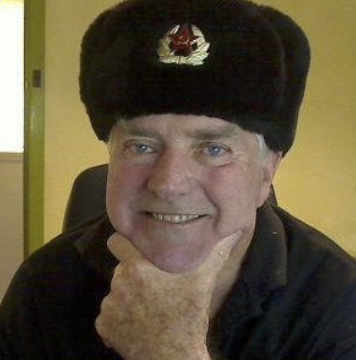Mount Lawley Teachers’ college staff experience would be incomplete without a mention of the executive and support staff, who were responsible for all the behind scenes work.
Executive Staff
Bob Peter - Head
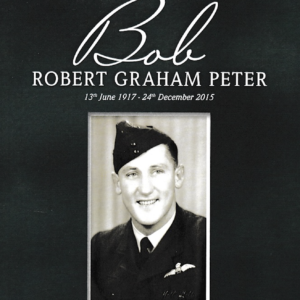 Bob Peter was set on a path for teacher education reform, using modern learning experiences and eliminating outdated practices. Academic autonomy was encouraged in the areas of teaching; designing courses; and assessing the effectiveness of the teaching.
Bob Peter was set on a path for teacher education reform, using modern learning experiences and eliminating outdated practices. Academic autonomy was encouraged in the areas of teaching; designing courses; and assessing the effectiveness of the teaching.
Bob Peter’s agenda addressed a number of problems with the traditional method of teacher training which included: the lack of college autonomy, the lack of appropriate criteria to predict teaching success, the relevance of academic courses to classroom practice, inefficient mass instructional methods with an overloaded curriculum, poor administrative procedures, and the possibility of failure to achieve the prime objective of turning out capable school teachers by the end of their training.
Bob Peter insisted that all staff modify their teaching styles to reflect the changes in education and to how students how it should be done. To achieve this, Bob Peter placed teaching practice and preparation at the core of the instructional program.
Charlie Staples - Deputy Head
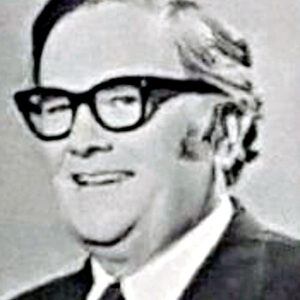 Charlie Staples (1910–1997) was an educationist, historian, and philanthropist, was born on 18 June 1910 at Bunbury, Western Australia. Charlie attended Bunbury Central Primary School, and Bunbury High School (1923–27). In 1928 he began teaching as a monitor at Boyanup before moving the next year to Claremont Teachers’ College, Perth, graduating with a certificate in teaching in 1930. That year he commenced a three-year term at the one-teacher school at Northcliffe. From 1934 until 1942 he taught in a succession of small primary schools in the south of the State.
Charlie Staples (1910–1997) was an educationist, historian, and philanthropist, was born on 18 June 1910 at Bunbury, Western Australia. Charlie attended Bunbury Central Primary School, and Bunbury High School (1923–27). In 1928 he began teaching as a monitor at Boyanup before moving the next year to Claremont Teachers’ College, Perth, graduating with a certificate in teaching in 1930. That year he commenced a three-year term at the one-teacher school at Northcliffe. From 1934 until 1942 he taught in a succession of small primary schools in the south of the State.
Mobilised in the Citizen Military Forces in World War II, he served part time with the Volunteer Defence Corps at Katanning (1942—43) and full time with No. 4 Psychology Testing Section in Perth (1943). From 1938 until 1945 he studied part time at the University of Western Australia (UWA), majoring in history (BA, 1946), then undertaking postgraduate research (MA, 1950). He published his research in journal articles and later in a book, They Made Their Destiny: History of Settlement of the Shire of Harvey 1829–1929 (1979).
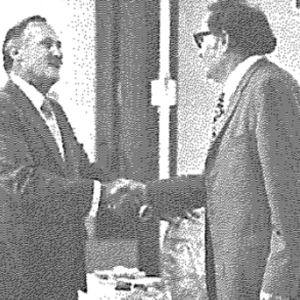 In 1944 Staples taught at Mullewa and then at Perth Modern School before moving to Perth (1946–49) and Leederville (1950–54) technical colleges, where he lectured mostly to ex-servicemen as part of the Commonwealth Reconstruction Training Scheme. Returning to the high school system, he was appointed senior master in social studies at a succession of metropolitan schools, including Kent Street (1957–59) and Applecross (1961–63). He had gained a diploma of education from UWA in 1957. Intent on pursuing history at the tertiary level, he took long service leave (1963) and leave without pay (1963–64) to study at the University of London (MA, 1965). Returning to Perth, he took up an appointment as senior lecturer in social sciences at Graylands Teachers’ College, a position he retained until 1969.
In 1944 Staples taught at Mullewa and then at Perth Modern School before moving to Perth (1946–49) and Leederville (1950–54) technical colleges, where he lectured mostly to ex-servicemen as part of the Commonwealth Reconstruction Training Scheme. Returning to the high school system, he was appointed senior master in social studies at a succession of metropolitan schools, including Kent Street (1957–59) and Applecross (1961–63). He had gained a diploma of education from UWA in 1957. Intent on pursuing history at the tertiary level, he took long service leave (1963) and leave without pay (1963–64) to study at the University of London (MA, 1965). Returning to Perth, he took up an appointment as senior lecturer in social sciences at Graylands Teachers’ College, a position he retained until 1969.
Staples advocated changes to the system of teacher education. Appointed vice-principal of Mount Lawley Teachers College in 1970, with the principal Robert Peter he implemented a system of continuous assessment, brought in a semester system, and introduced student representation on college committees. Having joined the State School Teachers’ Union of Western Australia in 1930, he remained active in its affairs until his retirement in 1974.
Over many years he argued persuasively for the value of historical studies to the wider community. He died on 23 April 1997 in South Perth and was cremated.
Alison Aldridge (Women's Warden)
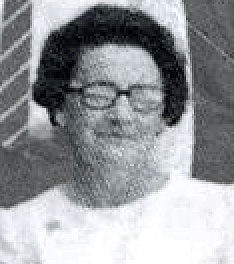
The Women’s warden was a position closely involved in the operation and co-ordination of assessment shcemes, in general administration and in the supervision of programs designed to identify problems in individual student progress.
Her position could not be predominantly associated with pastoral care for female students, thus the title “Women’s Warden” became a misnomer. As a result, this title was scrapped and the position upgraded to Vice-Principal, thus creating two posts at this level, one of which would always be filled by a female.
Support Staff
Donald Murtagh (Librarian)
John Pannell (Multimedia & Learning Resource Centre)
William Pervan (Registrar)
Bill Pervan was appointed at the beginning of 1970 and remained the registrar for the first ten years of MLTC. Administration in the non-academic sector was a shared activity between the Registrar and his staff and the academic staff, including the Principal, and other senior personnel.
Students began to arrive at MLTC in first semester 1971. At this time a permanent office had been set up and organised. There was also a bookshop and the printing room was able to print College publications.
Grace Taylor (Librarian)
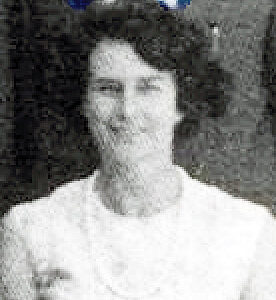 Grace Taylor, the librarian, took up her appointment in April 1970. Accommodation was made available for her in the Library Services Branch, where she was joined by a typist. Approximately 3,500 books requisitioned by MLTC were stored in the basement of the Education Department, which was broken into while the books were stored there.
Grace Taylor, the librarian, took up her appointment in April 1970. Accommodation was made available for her in the Library Services Branch, where she was joined by a typist. Approximately 3,500 books requisitioned by MLTC were stored in the basement of the Education Department, which was broken into while the books were stored there.
Books could only be moved gradually, due to lack of space and by the time the College had opened, 2,500 had been processed. The Library opened on 18th September, soon after the College moved to Bradford St. A lecture room was furnished temporarily as a Library and an adjoining lecture room was used as a reading room.
A long awaited move into a new Library came on 29th May, 1972. The main entrance was not finished, and temporary arrangements had to be made to use the emergency exit as a Library entrance from May to September. A small counter was the control centre for issuing and returning books. Reserved books were also distributed from here. The process was very difficult and continued until 22nd September, 1972, until the main entrance was completed.
Grace Taylor, later Grace Rigg, was the senior librarian for the first ten years of MLTC.
Robert Vallis (Art Curator)
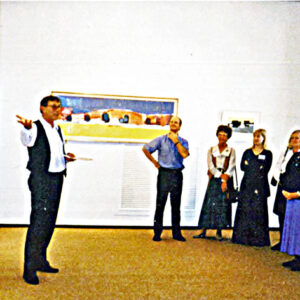
Retired ECU collection curator Robert Vallis used to refer to himself as ‘Curator of Corridors’.
Robert Vallis, the former Director of Bunbury Art Galleries became a part-time Art Curator of the MLTC Collection, until the position became full-time. He proved to be an imaginative and innovative curator, who set a pattern for the activities of the Collection to the present day. One of his first tasks was to see Art as a Social Document to its end.
In his own words: “The Art collection has survived and prospered, being now recognised as a useful tool in the marketing and development and educational requirements associated with the University. Without the gallery walls how does an art collection earn its keep? What initiatives can bed down to strong foundations associated with adding more art works? Where do we get the bright lights and spin of tangible reflections which guarantee a legitimate place for the art collection in the scheme of
things?”
“A university is like a bad novel, too many characters with no plot. A lasting impression when I arrived having spent most of my working life in small schools and organisations. I had trained as a teacher thirty years previously and what a shock – the abundance of everything – vehicles, media gear, in-house help for this that and anything-however patience is the key. Eventually you will find someone who can help advise you what to do-but I return to it, you have to be very patient.”
After noting the initial surge of interest in providing a gallery, Vallis formed the considered op1n1on that the Collection should be permanently present in the community. He gave little or no consideration to the need for a permanent gallery on campus.
Obituaries
VALLIS (ROBERT)
In Memory of Robert Vallis 1944 – 2024
His passing was peaceful and painless, assisted by very caring, attentive friends, family and carers. In his own words:
“It was a fortunate life, not necessarily my brilliant career”.
VALLIS ROBERT Members of the new ECU might not have known who managed the art that surrounded them but they were the richer for it. Rest in peace Robert. You made a difference.
Irene F – 29 April 2024
VALLIS ROBERT A firm and trusted friend to me since Elizabeth Jolley introduced us in 1985, Robert had a piercing intelligence, cutting wit and, above all, a kind heart. He had a productive career in the arts thanks to his fine judgement. He was wise and courageous until the very end. I and many others who have benefited from his generosity and his friendship will miss him deeply. May he rest in peace.
Edmund and all the Doogue family – 3 May 2024
Trevor Podesta (College Bus Driver)

